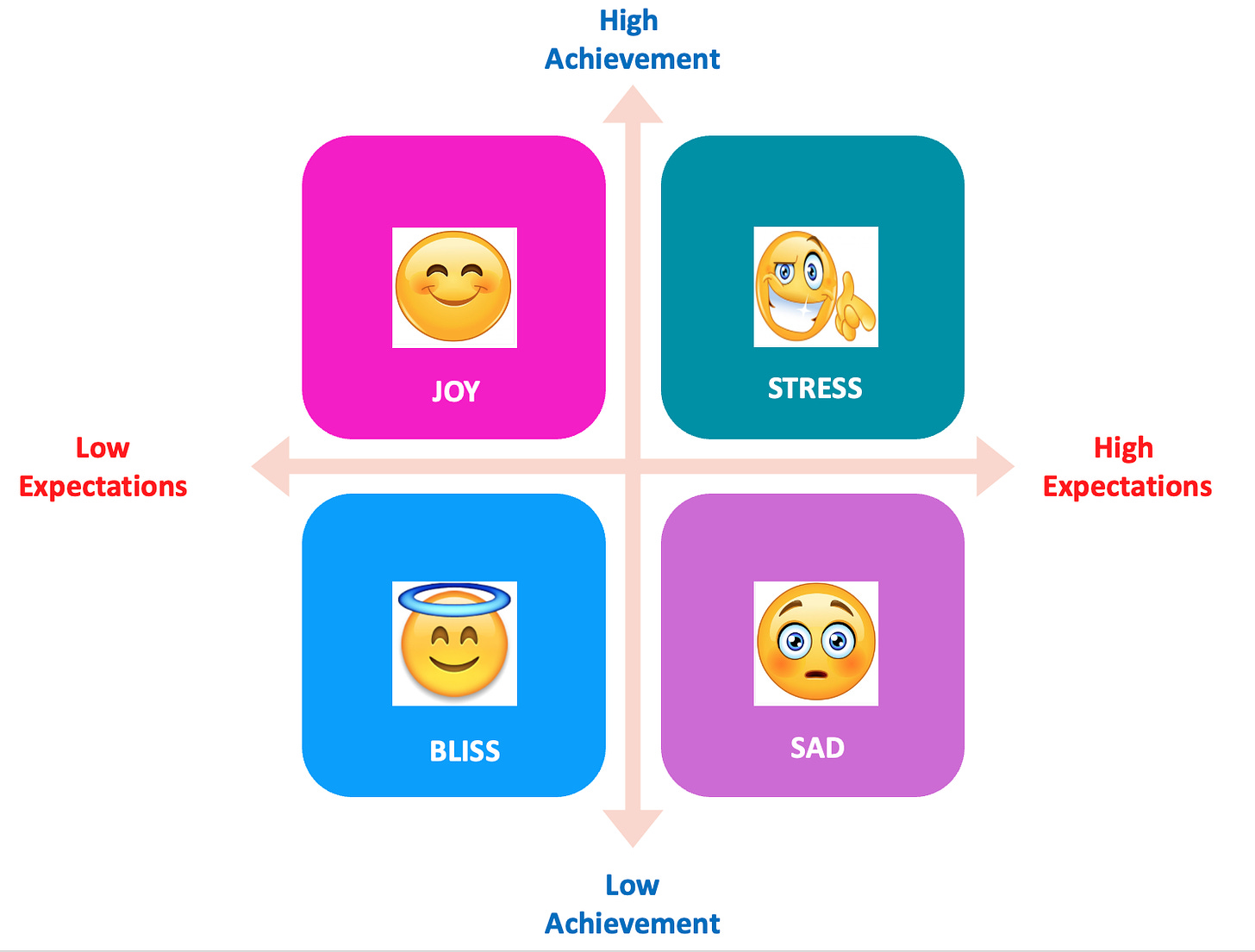The framework:
Us humans have a happiness set-point (a baseline level of happiness).
The set-point is individual, driven by heredity, traits, experiences and personal circumstance. There is inertia around this set point.
We can create self reinforcing achievement/expectation loops to improve (or reduce) our happiness set-point over time.
Achievement is an important part of our happiness, but it is only one lever of three. Managing expectations is equally as important a driver of our happiness as achievement. And maintaining and improving our happiness set-point helps us stay in our happy place.
As we achieve more and progress in our careers and lives, our expectations rise even higher so we feel more dissatisfied. These higher expectations make us desperate for more achievement (which is typically external and challenging to achieve) Vs managing our expectations (which is internal and entirely in our control.)
Externalising our locus of happiness causes a feeling of loss control and leads to a negative loop driving down our happiness set-point.
To maximise the happiness yield curve, drive one level higher achievement with one level lower expectation vs your station in life.
A simple way to leverage this framework is just to be kind in our daily life and interactions. Altruism and kindness give us strong achievement with low expectations - and drive the positive loop. Look for unexpected small achievements all the time to drive repeated endorphin hits that produce the self-reinforcing loop that drives the happiness set-point up.
Rarely, we have expectations to change the world. If this is a given in your mental makeup, and you MUST go down that path, then to achieve happiness you will need extraordinary efforts, focus and achievement. Be prepared for the cost you will need to pay and the tradeoffs you will need to make.
Applications:
Retirement: You can retire whenever your lifestyle costs less than your passive income. To retire quickly, simplify your life and minimise your lifestyle first.
Fund management: You can be delighted with your performance as a fund manager if you beat the index, even if your business does not grow.
Target achievement: Setting the right target is as important as achieving it.
Students: Think about lowering expectations by breaking down a long term goal into manageable chunks.
What other applications can you think of? Do you have other happiness frameworks to share?
Add your thoughts below or write to frameworks@adityasehgal.com!
Disclaimers:
This is only one of the Frameworks for happiness. Further dimensions and frameworks to be explored in future newsletters.






Wonderful framework this . Much of the stress that is caused in our life is by saddling ourselves with expectations , many a time influenced by perceived external benchmarks of success ( bigger title , bigger house etc). Completely agree on the point of Altruism and kindness , something we all possess in abundance and yet most refrain from sharing . I think this finds inherent roots in the eternal debate on journey vs. destination . Do we over obsess about the destination (achievement) and fail to enjoy the journey . If one can discover joy in the journey , then can one achieve a happiness set point that is constant and any thing one manages to achieve during it becomes just a bonus ? The above approach can be incongruous to existing dogmas of the corporate world , however can find application in personal life for sure.
Adi, thank you. I have recently come across a great
resource centre on kindness. Link for anyone who wants to follow: https://www.sussex.ac.uk/research/centres/kindness/research/kind_wellbeing